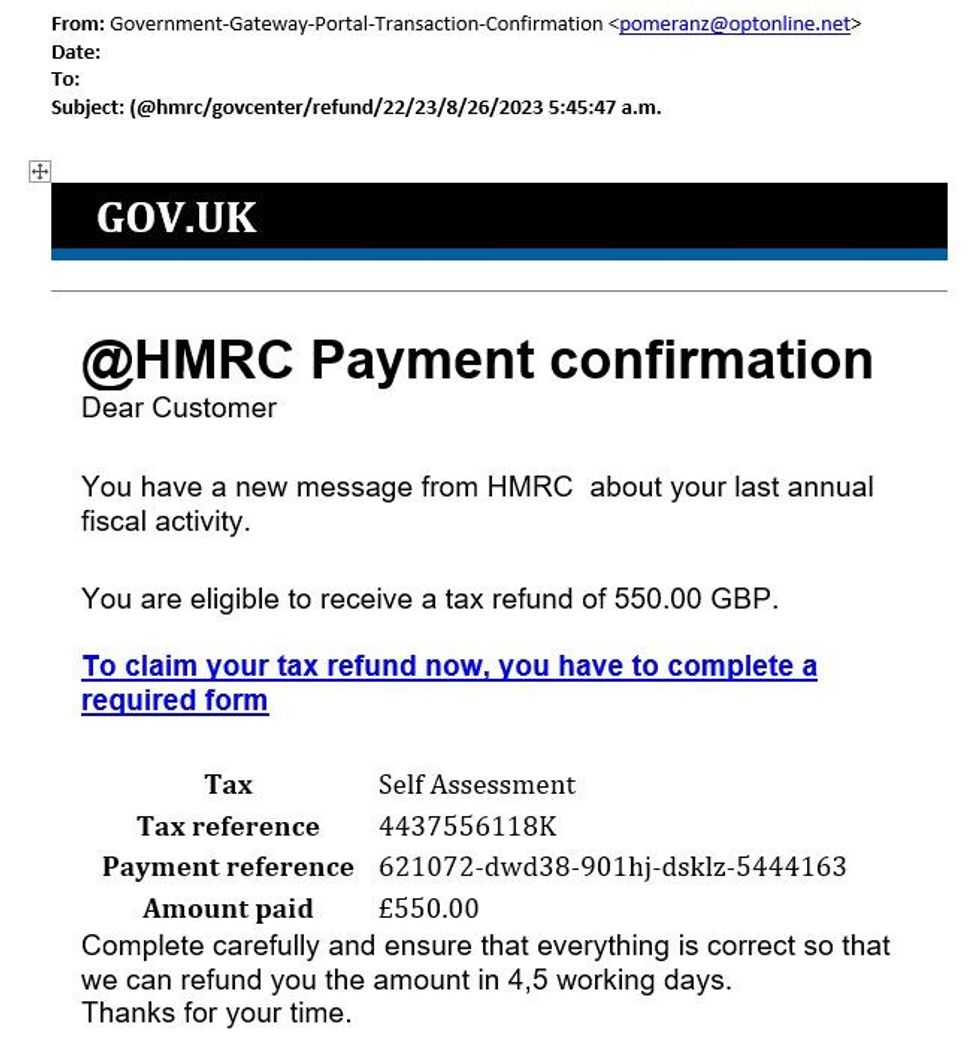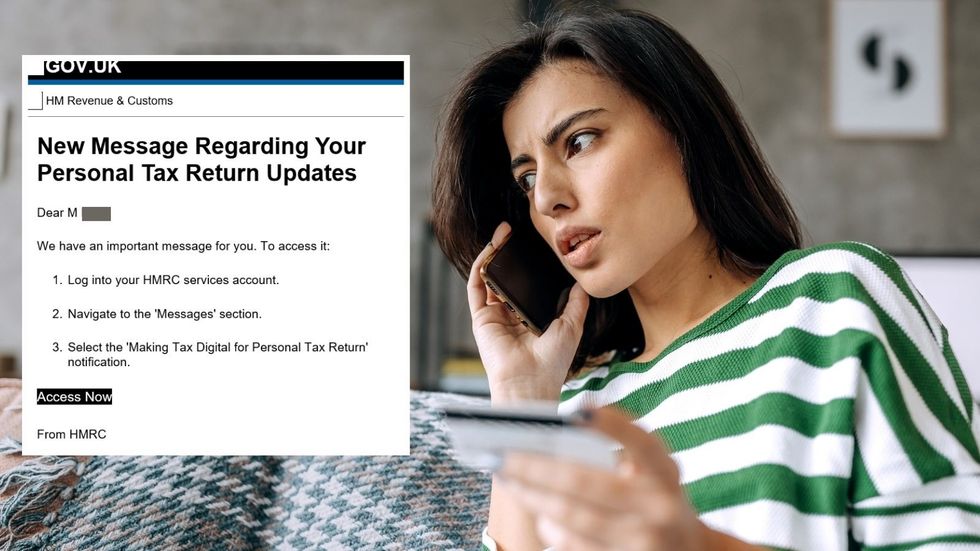The fraudulent text claimed the recipient was eligible for a £327.45 tax refund
Don't Miss
Most Read
Trending on GB News
Britons have been urged to stay vigilant as fraudsters target victims with fake HMRC tax refund emails.
Action Fraud has sounded the alarm after concerned individuals took to social media to question suspicious texts and emails.
A social media user has reported receiving a suspicious HMRC text that appeared to come from a legitimate number but contained a fraudulent link to a Russian website.
Their phone automatically flagged the message as spam, sparking concerns that fraudsters are targeting unsuspecting taxpayers.
The scam text, designed to appear authentic, states: "HMRC Notice: Our records show you're eligible for a tax refund of £327.45. Please claim your refund via: https://govuk.claim-refund.ru/help."
HMRC has confirmed that while they do send text messages to some customers, any text offering a tax refund in exchange for personal or financial details is a scam.
 HMRC has shared photographs of emails of tax refund scam attempts to alert others HMRC
HMRC has shared photographs of emails of tax refund scam attempts to alert others HMRCAction Fraud has issued a fresh warning on X, alerting the public to a new wave of phishing attempts, stating: "Be aware of scam emails claiming to be from HMRC offering fake tax refunds.
"These emails ask for personal and financial details.
"Do not respond – this is a scam."
In its guidance, HMRC explains that it will never email individuals about a tax rebate or request personal or payment details unless the email comes from an official hmrc.gov.uk address.

Acrtion Fraud issued a warning about the bogus HMRC tax refunds
HMRC | X | @FRAUD_PANELFraudsters are impersonating HMRC to steal personal and financial information, often spoofing legitimate email addresses or altering display names to make their messages appear genuine.
The public is advised not to click on any links in emails claiming they are owed a tax rebate, open attachments from unknown or unexpected senders, or provide personal or payment information in response to unsolicited messages.
HMRC has urged anyone who receives a suspicious email to forward it to the department immediately and then delete it.
 HMRC is urging people to beware of fake tax refund emails after 200,000 people reported suspicious messages HMRC | GETTY
HMRC is urging people to beware of fake tax refund emails after 200,000 people reported suspicious messages HMRC | GETTYFake websites designed to steal sensitive data pose a serious risk.
To help fight phishing scams, Britons can send any suspicious text messages to 60599 (network charges apply) or email phishing@hmrc.gov.uk, then delete them.







